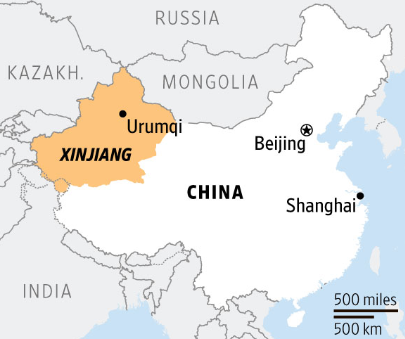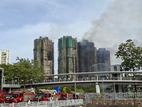A new report says that China tremendously increased its security spending in 2017 in the far-western region of Xinjiang.
Xinjiang, an autonomous territory in northwest China, is a vast region of deserts and mountains where hundreds of thousands of Muslims are alleged to have been detained.
According to the US-based group Jamestown Foundation, spending in areas "that explain nearly all security-related facility construction" rose by 213% between 2016 and 2017.
However, rendering to budget data that was reviewed by German academic Adrian Zenz for the report, spending on vocational training in Xinjiang actually decreased by 7% in 2017.
Spending on security-related construction, meanwhile, increased by nearly 20bn yuan ($2.9bn).
Zenz also added that the Xinjiang's budget figures "reflect patterns of spending consistent with the construction and operation of highly secure political re-education camps designed to imprison hundreds of thousands of [Uighurs] with minimal due process,"
Moreover, Zenz has previously suggested, based on local government tendering documents, that at least several hundred thousand and perhaps over a million Uighurs and other Muslim minorities could have been apprehended in Xinjiang.
The estimated numbers were also quoted at a UN human rights panel earlier this year and China denies that the facilities are internment camps.
The top official in the region has instead that a "vocational education and training program" helps people to "reflect on their mistakes and see clearly the essence and harm of terrorism and religious extremism".
According to regional officials, classes given are about Chinese history, language and culture.
Meanwhile, former Uighur detainees now living overseas have told the BBC that they had to sing Communist Party songs in the camps, and recite laws accurately or face beatings. One man said he was detained in 2015 after police found a picture of a woman wearing a face veil on his phone.
Zenz, an anthropologist and expert on Chinese ethnic policy at the European School of Culture and Theology in Germany, also found the camps were built by the same organization that oversaw China's now-abolished labor re-education system.
However, just on Tuesday, November 6, 2018 China's human rights record was reviewed at the UN Human Rights Council in Geneva.
In response to the British, French, German and US concerns about the suspected mass detentions, Chinese representative Le Yucheng said his country "will not accept politically-driven accusations from a few countries that are fraught with biases".
He insisted that China must be free to "choose its own path" when it came to human rights.








